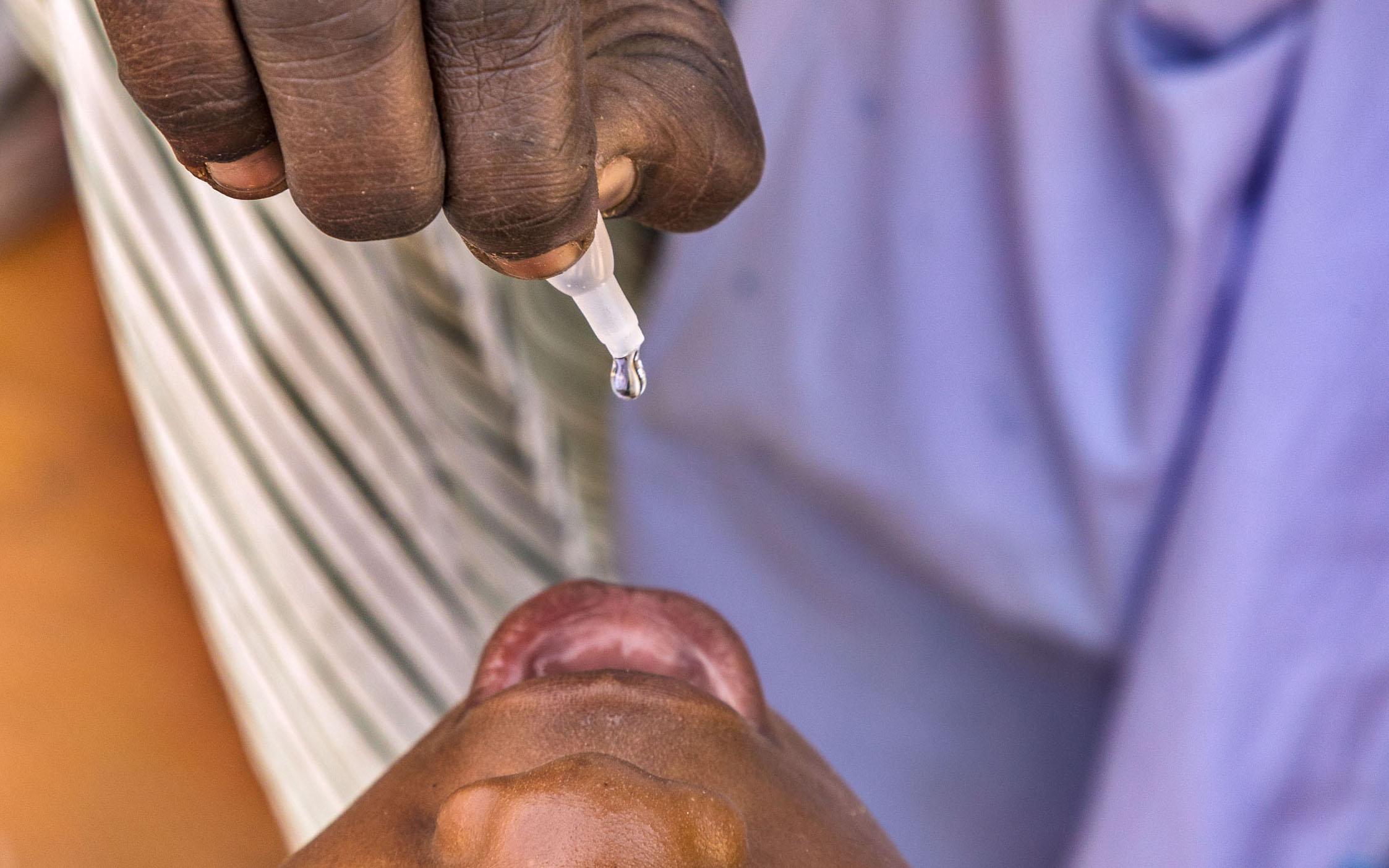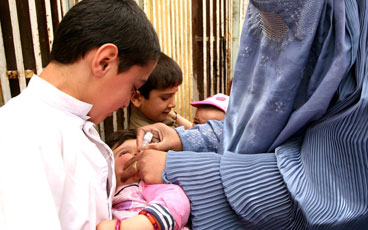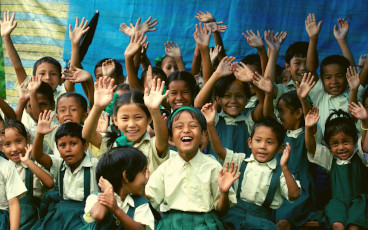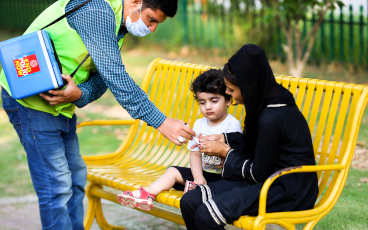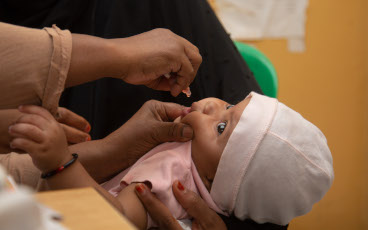Polio outbreak in Angola intensifying, with spread to neighbouring Democratic Republic of the Congo
A persistent outbreak of polio in Angola is geographically expanding in 2010
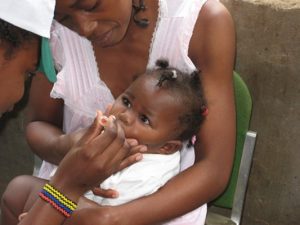
A persistent outbreak of polio in Angola is geographically expanding in 2010, with cases detected since February in previously polio-free provinces of Angola (Bie, Bengo, Huambo, Lunda Norte and Lunda Sul), and one genetically-related case in the Democratic Republic of the Congo (in Kasai Occidentale province, which borders Angola) on 25 May. Angola could become the greatest risk to polio eradication in Africa, given the significant progress being achieved in Nigeria and other parts of west and central Africa.
The epicentre of the outbreak is the capital Luanda. The country has had a persistent outbreak of poliovirus type 1 (WPV1) since 2007, where 8 cases were reported that year, and 29 cases each in 2008 and 2009.
Given the persistent and widespread transmission of wild poliovirus, ongoing sub-national surveillance gaps and recent further spread of WPV1 internationally, WHO considers as high the risk of further international spread into neighbouring countries. As per recommendations outlined in WHO’s International Travel and Health recommendations, travellers to and from Angola should be fully protected by vaccination.
Angolan Minister of Health Dr José Vieira Dias Van-Dúnem re-affirmed Angola’s strong commitment to stop polio transmission by end-2010. In 2010, Angola has conducted a sub-national supplementary immunization round using monovalent OPV type 1 (mOPV1) targeting high risk provinces from 7-9 May, a national immunization round from 11-13 June using a combination of trivalent OPV (tOPV) and mOPV1, and mop-up immunization campaigns with mOPV1 in response to WPV1 cases (on 23-25 April in Bie, and on 4-6 June and 18-20 June in Lunda Norte and Lunda Sul). Further national immunization rounds are planned for early August and September. The Democratic Republic of the Congo conducted mop-ups on 4 June and 18 June with mOPV1, and further outbreak response is currently being planned.
In 2009 and 2010, immunization coverage has been sub-optimal, with as much as 25% of children regularly missed during supplementary immunization activities (SIAs) Urgent action is needed to ensure that all children in Angola are reached with oral poliovirus vaccine during the SIAs taking place in August and September, through strengthened engagement and ownership of SIA operations by provincial- and district-level political and administrative leadership.
It is important that countries across central Africa, in particular those bordering Angola, strengthen disease surveillance for AFP, in order to rapidly detect any poliovirus importations and facilitate a rapid response. Countries should also continue to boost routine immunization coverage against polio to minimize the consequences of any introduction.


